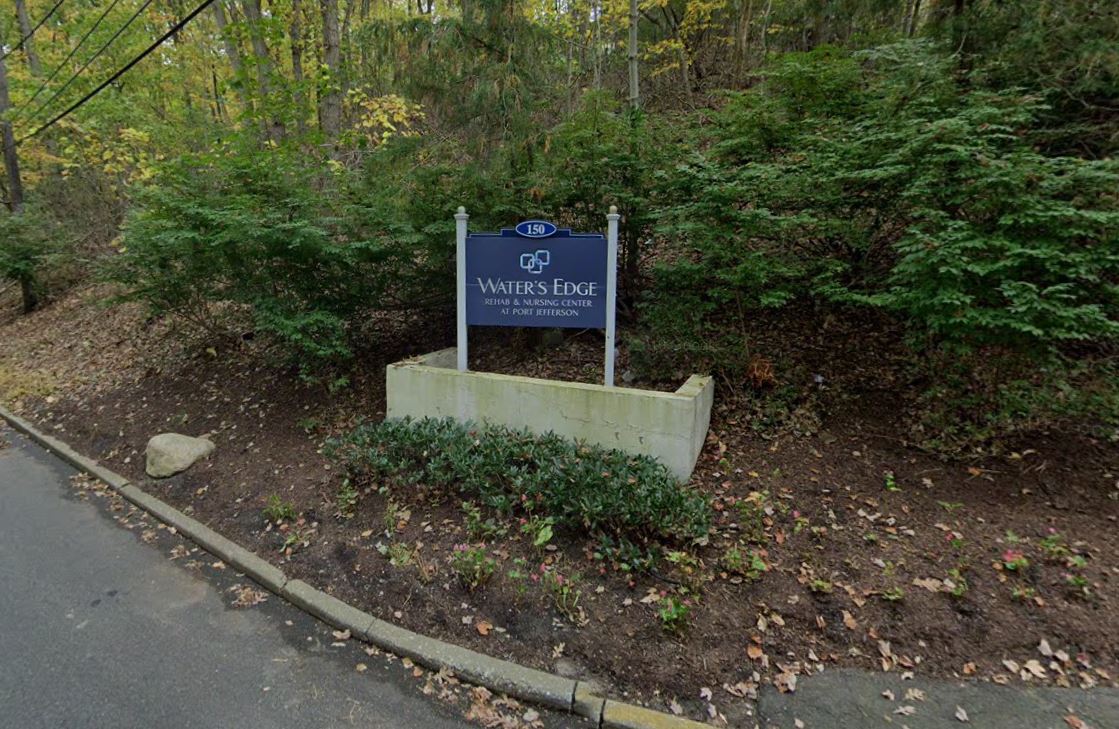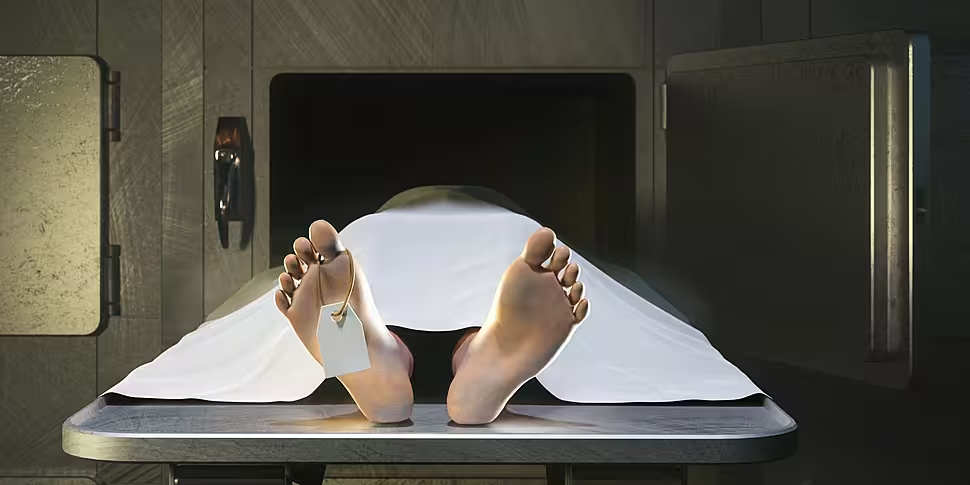Two recent incidents in the US where people who were pronounced dead were pulled from body bags alive and breathing could not happen in Ireland, a funeral director has said.
Fanagans Funeral Home Director David Fanagan was speaking after an investigation was launched into an incident in New York over the weekend.
An 82-year-old woman was said to be dead at Water's Edge Rehab and Nursing Centre at 11.15am on Saturday.
Suffolk County Police said the woman was taken to the OB Davis Funeral Homes in Miller Place at 1.30pm.
 A sign for Water's Edge Rehab and Nursing Centre in New York state in the US. Picture by: Google Maps
A sign for Water's Edge Rehab and Nursing Centre in New York state in the US. Picture by: Google MapsShe was discovered breathing at 2.09pm and taken to a hospital.
The state attorney general and health department are investigating.
It comes just weeks after a care home in the US state of Iowa was fined $10,000 (€9,362) over a similar episode.
Mr Fanagan told Moncrieff that similar incidents would not happen in Ireland.
"Something like that should never happen," he said.
"Interestingly, both of them were nursing homes; I have to think hospital protocols and governance are far superior.
"In Ireland this doesn't happen and won't happen.
"The procedures we have in the 26 counties are very good indeed."
Death notification
Mr Fanagan explained what happens after a death.
"A person, when they die - be it in a nursing home or a hospital - a doctor must pronounce that person as having died and must indicate that he or she will issue a death notification form," he said.
"No doctor has ever written a death certificate.
"That causes problems because people think 'Oh the doctor's written the death cert' - no doctor in Ireland has ever written a death certificate.
"The doctor writes a death notification form; it's a medical certificate of the cause of death.
"The death notification form is giving to the family and the family register the death with a registrar for deaths, located in each county.
"It's the registrar for death that issues the death certificate".
Coroner
He said a coroner can be brought in if someone dies unexpectedly.
"A doctor can sign that death notification form if the doctor has seen that person within 28 days," he said.
"If somebody dies unexpectedly and hasn't seen a doctor, the coroner is then brought in and the coroner then indicates that they're not satisfied.
"The coroner says, 'We need a post mortem examination to be conducted to find out the cause of death'.
 A corpse lying inside a morgue. Picture by: Panther Media GmbH / Alamy Stock Photo
A corpse lying inside a morgue. Picture by: Panther Media GmbH / Alamy Stock Photo"The pathologist sends the report, the coroner then sends his certificate to the registrar for deaths and the registrar for deaths issues the death certificate.
"In cremation, in this country, no cremation can take place unless a doctor has seen the person both before and after death".
In the UK, two doctors have to sign off on a death.
"To be sure, to be sure - that's for cremation," he added.
Listen back here:









